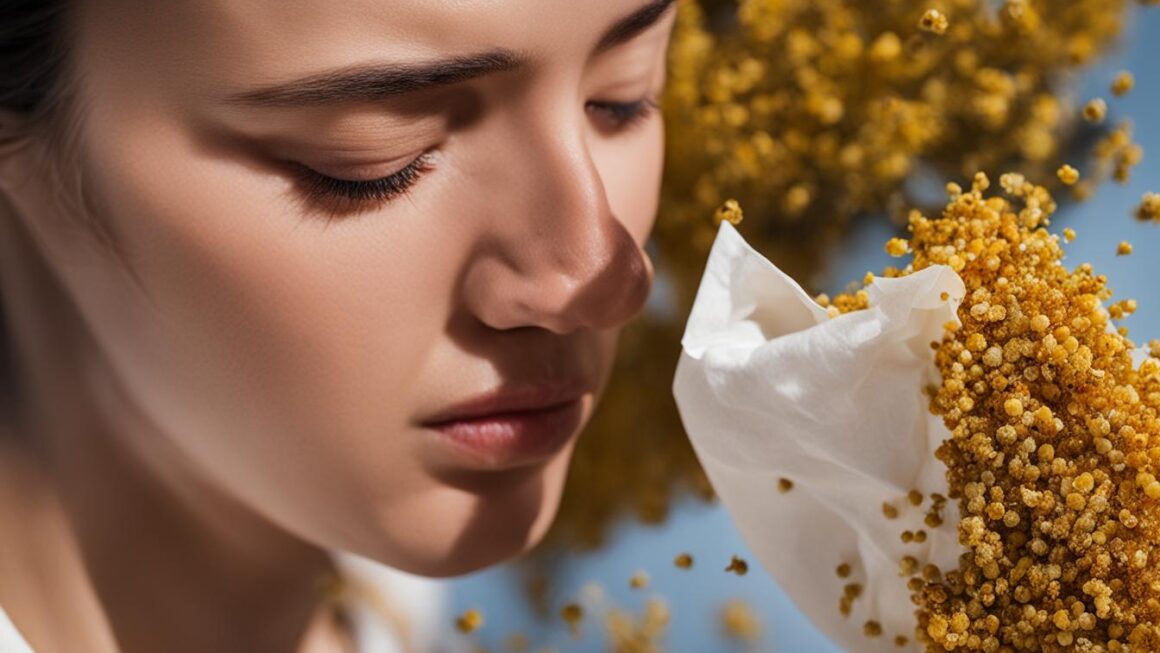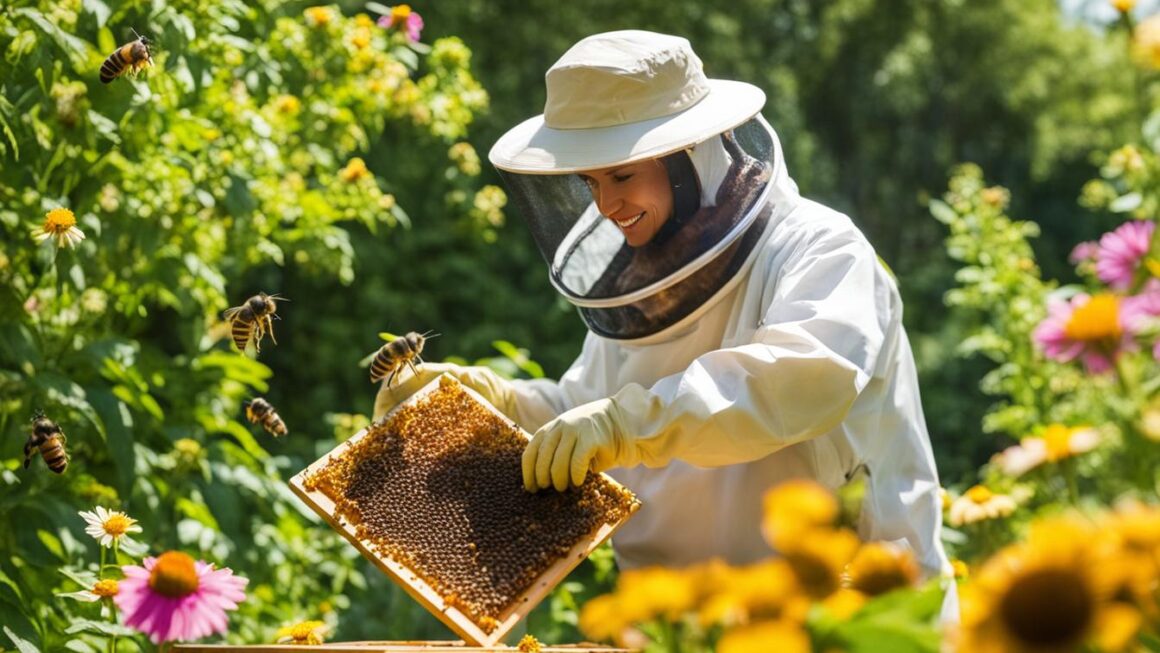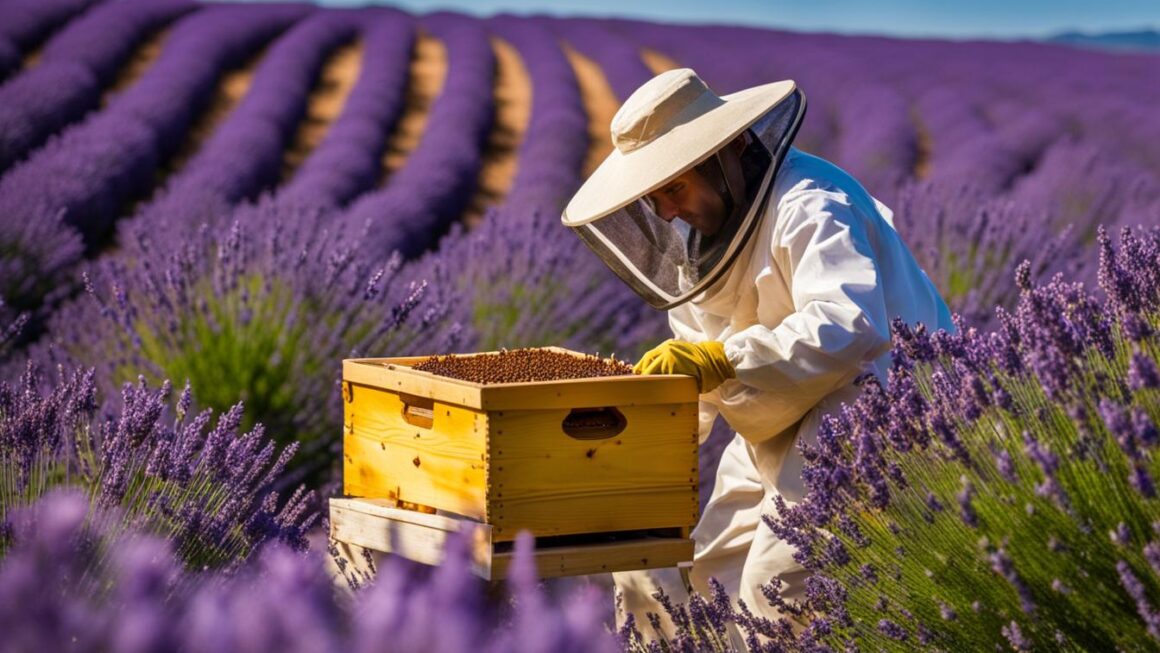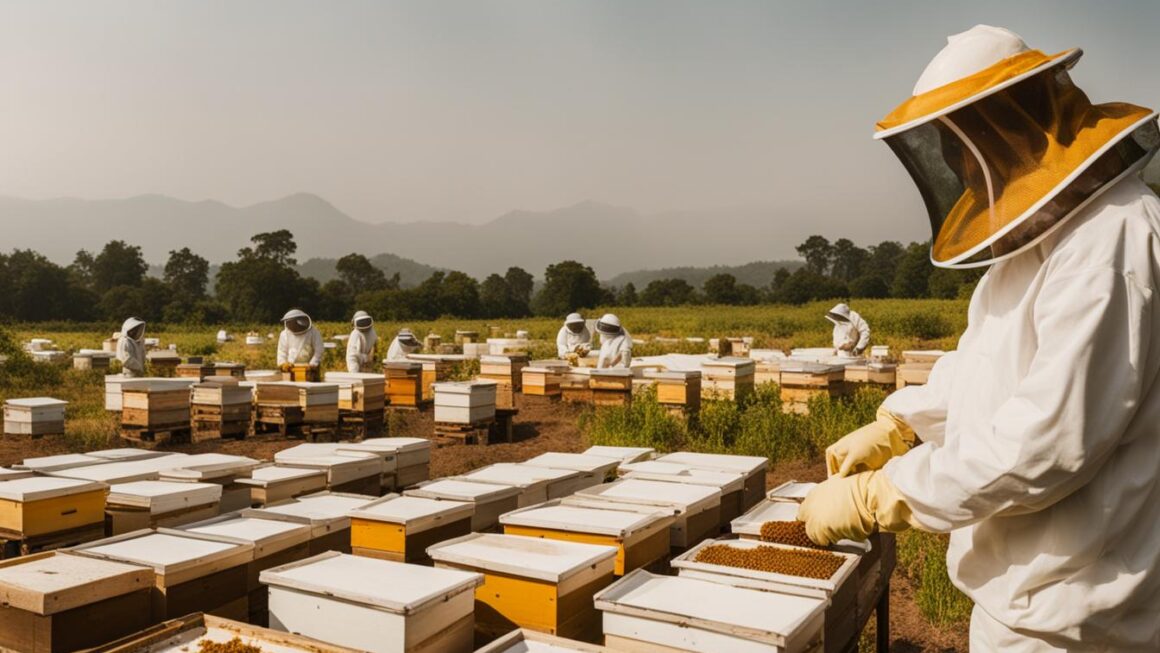Bee pollen is often promoted as a highly nutritious food with various health benefits. However, scientific research has not yet confirmed these claims. Bee pollen contains vitamins, minerals, carbohydrates, lipids, and protein. It is important to note that bee pollen should not be confused with other bee products like natural honey or royal jelly. While bee pollen can be found in health food stores and dietary supplements, there is no definitive proof that it can effectively treat conditions such as alcoholism, asthma, allergies, or enlarged prostate. Further research is needed to determine the true efficacy of bee pollen for these health concerns.
It is worth mentioning that bee pollen is generally considered safe for short-term use, but individuals with pollen allergies may experience serious allergic reactions. Pregnant women, breastfeeding women, and children should avoid bee pollen consumption. Bee pollen may also interact with certain medications and increase the risk of bleeding when taken with blood thinners. It is crucial to consult with a healthcare professional before using bee pollen as a natural treatment.
Key Takeaways:
- Bee pollen is a highly nutritious food, but scientific research has not confirmed its health benefits.
- It should not be used as a treatment for conditions like alcoholism, asthma, allergies, or enlarged prostate until more research is conducted.
- Individuals with pollen allergies should avoid bee pollen consumption.
- Pregnant women, breastfeeding women, and children should also avoid bee pollen.
- Bee pollen may interact with certain medications and increase the risk of bleeding.
The Potential Benefits of Bee Pollen
Bee pollen, although not extensively studied, has shown some potential benefits in certain areas. While scientific evidence is limited, preliminary research suggests that bee pollen may have positive effects on certain health conditions.
A small study found that bee pollen may help alleviate certain side effects of radiation therapy for cancer. This is an encouraging result, but further research is needed to confirm these findings. Another study suggested that an extract of bee pollen could benefit men with chronic prostatitis or an enlarged prostate, offering a potential natural alternative for managing these conditions.
“Bee pollen may have therapeutic potential for certain health concerns, such as reducing radiation therapy side effects and aiding in the management of chronic prostatitis.”
In addition, a product containing bee pollen, among other ingredients, was found to alleviate symptoms of premenstrual syndrome (PMS). This offers a glimmer of hope for individuals seeking natural remedies for PMS symptom relief. However, it is important to note that more research is needed to fully understand the potential benefits and effectiveness of bee pollen for these health concerns.
It is worth mentioning that claims regarding bee pollen enhancing athletic performance, reducing chemotherapy side effects, and improving allergies and asthma have not been extensively studied and should be approached with caution.
The Potential Benefits of Bee Pollen
| Condition | Potential Benefit |
|---|---|
| Cancer patients undergoing radiation therapy | Alleviation of certain side effects |
| Men with chronic prostatitis or enlarged prostate | Possible symptom relief |
| Women with premenstrual syndrome (PMS) | Possible symptom alleviation |
Nutritional Profile of Bee Pollen
Bee pollen is known for its rich nutritional content, making it a popular choice for those seeking natural sources of vitamins and minerals. Here is a breakdown of the key nutrients found in bee pollen:
- Vitamins: Bee pollen is a good source of various vitamins, including vitamin C, vitamin E, and B vitamins such as thiamin, riboflavin, and niacin.
- Minerals: It contains essential minerals like calcium, potassium, magnesium, and iron, which play important roles in maintaining overall health.
- Proteins and Amino Acids: Bee pollen contains a range of amino acids, the building blocks of proteins, which are essential for the growth and repair of body tissues.
- Carbohydrates: It provides carbohydrates in the form of natural sugars, such as fructose and glucose, which provide energy to the body.
However, it is crucial to remember that while bee pollen is considered nutritious, it is not a proven treatment for any specific health condition. The nutritional profile of bee pollen does not guarantee its effectiveness in treating ailments or providing significant health benefits.
It’s also important to note that the nutritional composition of bee pollen can vary depending on the region and plants from which the pollen is collected. Therefore, the specific nutritional content may differ between different sources of bee pollen.
Table: Nutritional Composition of Bee Pollen
| Nutrient | Amount per 100g |
|---|---|
| Vitamin C | 5.7mg |
| Vitamin E | 1.2mg |
| Thiamin (Vitamin B1) | 0.2mg |
| Riboflavin (Vitamin B2) | 0.4mg |
| Niacin (Vitamin B3) | 1.4mg |
| Calcium | 32mg |
| Potassium | 300mg |
| Magnesium | 20mg |
| Iron | 1.3mg |
| Protein | 15g |
| Carbohydrates | 45g |
It is always advisable to consult with a healthcare professional before using bee pollen or any other natural product for a specific health condition. They can provide personalized advice based on your individual needs and circumstances.
Allergic Reactions to Bee Pollen
Bee pollen can cause severe allergic reactions, especially in individuals with pollen allergies. The pollen collected by bees can come from allergenic plants, and ingesting bee pollen can trigger allergic symptoms. These symptoms may include itching, hives, swelling of the tongue, lips, and face, and difficulty breathing. It is crucial for healthcare providers to be aware of the potential for severe allergic reactions to bee pollen, particularly in individuals with known pollen allergies. It is recommended that individuals with pollen allergies avoid consuming bee pollen or products containing bee pollen to prevent an allergic reaction.
Individuals with known pollen allergies should exercise caution when considering the use of bee pollen as a natural treatment. It is advised to consult with a healthcare professional before incorporating bee pollen into a dietary regimen, especially if there is a history of severe allergic reactions. Allergy testing may be recommended to determine the specific allergens that trigger the individual’s symptoms.
While bee pollen is often marketed as a highly nutritious food, it is important to weigh the potential benefits against the risk of allergic reactions. Individuals with pollen allergies should prioritize their safety and opt for alternative sources of nutrition that do not pose a risk of triggering allergic symptoms. It is crucial to seek professional medical advice before making any changes to dietary habits or incorporating new supplements into a healthcare routine.
Allergy Management Tips
- Avoiding bee pollen and products containing bee pollen.
- Carrying an epinephrine auto-injector for severe allergic reactions.
- Informing healthcare providers and emergency responders about the pollen allergy.
- Reading food labels and avoiding foods with potential cross-reactivity to pollen allergens.
- Wearing a medical alert bracelet indicating the pollen allergy.
It is essential to take allergic reactions to bee pollen seriously, as they can be life-threatening. If you suspect an allergic reaction after consuming bee pollen or any other bee products, seek immediate medical attention.
Potential Phototoxic Reaction to Bee Pollen
Although rare, there have been reported cases of phototoxic reactions associated with bee pollen. Photosensitivity is an abnormal skin reaction to light, and a case study described a woman who experienced a phototoxic reaction after using a dietary supplement that contained bee pollen, ginseng, goldenseal, and other ingredients. The symptoms of the phototoxic reaction resolved after discontinuing the supplement and receiving corticosteroid treatments.
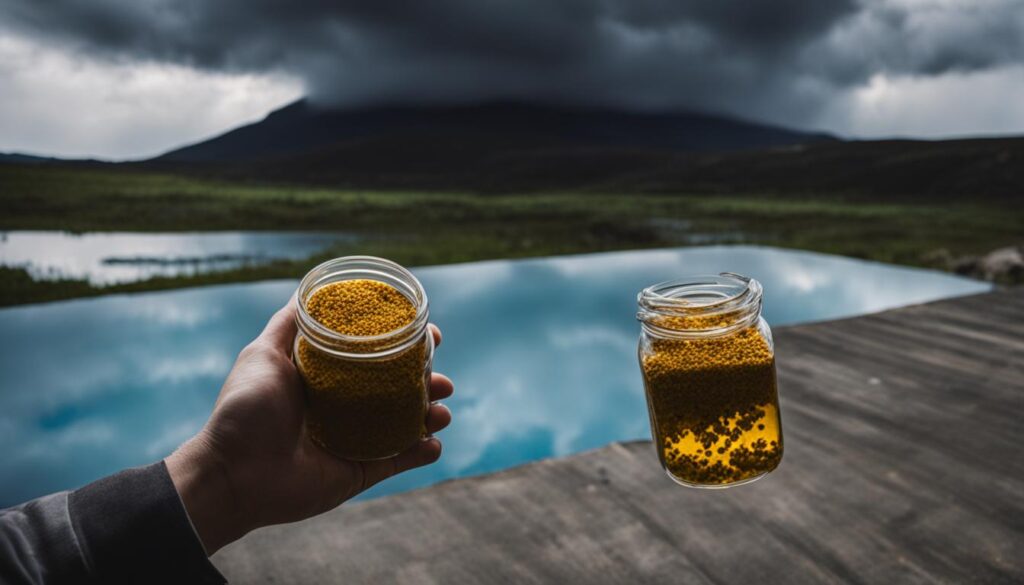
“The symptoms of the phototoxic reaction resolved after discontinuing the supplement and receiving corticosteroid treatments.”
It is important to exercise caution when using multiple herbs and supplements together to avoid potential interactions and adverse reactions. Phototoxic reactions can cause skin irritation, burning, blistering, and even long-lasting damage if not properly treated. While the exact mechanism of the phototoxic reaction to bee pollen is still unclear, it is advisable to be mindful of this potential risk when considering the use of bee pollen as a dietary supplement.
Bee Pollen and Renal Failure
Bee pollen, often touted for its nutritional benefits, has been associated with rare cases of renal failure. One case study reported a man who developed interstitial nephritis, a type of kidney inflammation, after consuming a nutritional supplement containing bee pollen for over five months. The man’s condition improved after discontinuing the supplement and undergoing hemodialysis. While limited information is available on the adverse effects of bee pollen, caution should be exercised when using it as a dietary supplement.
It is essential to note that the reported case of renal failure is rare and may not occur in the general population. However, it highlights the importance of being vigilant and seeking medical advice before incorporating bee pollen into your diet.
Bee pollen contains a mixture of substances, including vitamins, minerals, proteins, and carbohydrates, that may affect the kidneys in some individuals. It is crucial to consider personal factors such as existing health conditions, medication use, and overall kidney function when deciding whether to consume bee pollen. If you have any concerns about the potential risks of bee pollen on your kidneys, it is advisable to consult with a healthcare professional.
Bee Pollen and Potential Medication Interactions
Bee pollen, although touted as a natural health supplement, can interact with certain medications, posing potential risks to individuals. It is important to be aware of these interactions and consult with a healthcare professional before using bee pollen alongside any medications, including over-the-counter drugs and herbal supplements.
One notable interaction to be cautious of is with anticoagulants like warfarin. There have been reports of increased bleeding and a higher chance of bleeding and bruising when bee pollen is taken concurrently with warfarin. These interactions can have serious consequences for individuals who rely on anticoagulant therapy to manage their health conditions.
To ensure your safety and avoid any potential complications, it is crucial to disclose the use of bee pollen to your healthcare provider. They can assess the potential risks and benefits, consider alternative treatments or adjust medication dosages if necessary.
Potential Medication Interactions with Bee Pollen:
| Medication | Potential Interaction |
|---|---|
| Anticoagulants (e.g., warfarin) | Increased bleeding risk |
| Immunosuppressants | Reduced effectiveness of medication |
| Antiplatelet drugs (e.g., aspirin) | Increased bleeding risk |
| Nonsteroidal anti-inflammatory drugs (NSAIDs) | Increased bleeding risk |
| Diabetic medications | Altered blood sugar levels |
It is essential to prioritize your well-being by seeking professional advice and guidance when incorporating bee pollen or any other natural product into your healthcare regimen. Your healthcare provider can provide personalized recommendations based on your specific medical history and current medications, minimizing the potential risks.
Bee Pollen and Pregnancy
Taking bee pollen during pregnancy is considered possibly unsafe, as bee pollen has the potential to stimulate the uterus and threaten the pregnancy. There is limited information available on how bee pollen might affect the fetus. A study conducted on animals showed harmful effects on both pregnant rats and their fetuses when bee pollen was given throughout the gestational period. It is advisable for pregnant women to avoid the consumption of bee pollen and consult with a healthcare professional for alternative nutritional recommendations.
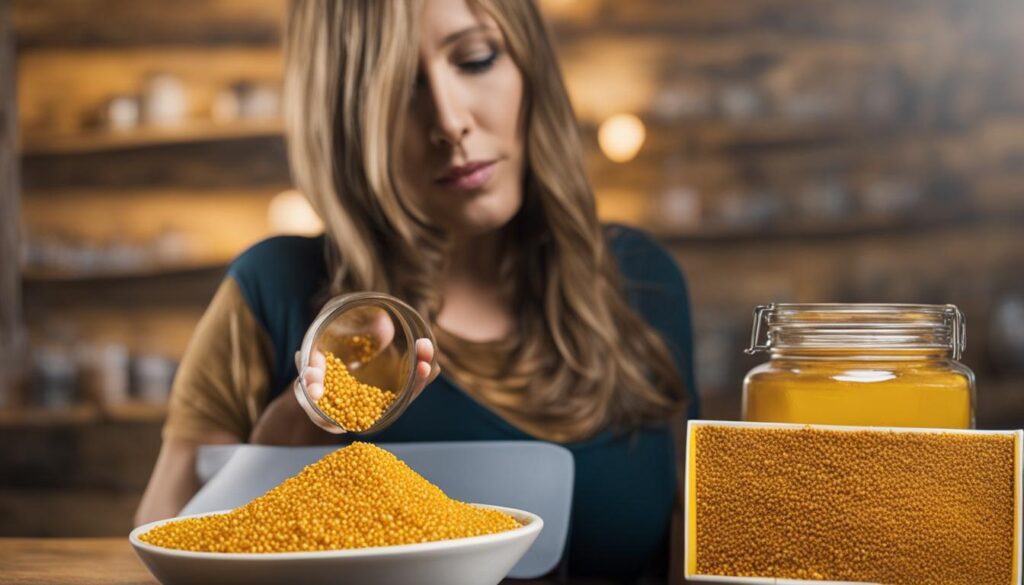
Benefits and Risks of Bee Pollen during Pregnancy
“The potential risks associated with bee pollen consumption during pregnancy outweigh any potential benefits. Limited research has shown harmful effects on pregnant animals and their fetuses when bee pollen was administered. Therefore, it is strongly advised for pregnant women to avoid the consumption of bee pollen to ensure a safe and healthy pregnancy.”
Alternative Nutritional Recommendations for Pregnant Women
- Consult with a healthcare professional or nutritionist to develop a well-balanced and nutritious diet during pregnancy.
- Focus on consuming a variety of fruits, vegetables, whole grains, lean proteins, and dairy products to meet the nutritional needs of both the mother and the developing fetus.
- Take prenatal vitamins and supplements as recommended by a healthcare professional to ensure adequate intake of essential nutrients.
- Avoid the consumption of unpasteurized foods, processed meats, high-mercury fish, and other substances that may pose a risk to pregnancy.
Conclusion
“While bee pollen may offer potential health benefits in certain contexts, it is not recommended for pregnant women due to the potential risks it poses to the pregnancy. Pregnant women should prioritize their health and consult with healthcare professionals for appropriate nutritional recommendations during this critical period.”
Conclusion
While bee pollen is often touted as a highly nutritious food with potential health benefits, it is important to note that scientific research supporting these claims is still lacking. Although bee pollen may show promise in treating certain health conditions, there have been reports of rare but serious side effects that cannot be ignored.
One of the main concerns associated with bee pollen is the risk of allergic reactions, especially in individuals with pollen allergies. These reactions can range from itching and hives to swelling of the face and difficulty breathing. Additionally, there have been rare cases of phototoxic reactions and renal failure linked to the consumption of bee pollen.
Furthermore, bee pollen may interact with certain medications, particularly anticoagulants like warfarin, increasing the risk of bleeding and bruising. Pregnant women should also exercise caution, as bee pollen has the potential to stimulate the uterus and threaten the pregnancy.
In light of these potential risks, it is crucial to consult with a healthcare professional before using bee pollen as a natural treatment. They can provide personalized advice based on your specific health condition and medications, ensuring your safety and helping you make informed decisions about your health.
FAQ
Can bee pollen make you sick?
Bee pollen can cause severe allergic reactions, especially in individuals with pollen allergies. It is crucial for individuals with known pollen allergies to avoid consuming bee pollen or products containing bee pollen to prevent an allergic reaction.
What are the side effects of bee pollen?
The reported side effects of bee pollen include severe allergic reactions, phototoxic reactions, and rare cases of renal failure. It is important to exercise caution when using bee pollen as a dietary supplement.
Can bee pollen cause allergic reactions?
Yes, bee pollen can cause allergic reactions, particularly in individuals with pollen allergies. The pollen collected by bees can come from allergenic plants, and ingesting bee pollen can trigger allergic symptoms such as itching, hives, swelling, and difficulty breathing.
What is a phototoxic reaction to bee pollen?
A phototoxic reaction is an abnormal skin reaction to light. There have been rare cases of phototoxic reactions associated with bee pollen consumption. It is important to exercise caution when using multiple herbs and supplements together to avoid potential interactions and adverse reactions.
Can bee pollen cause renal failure?
There have been rare cases of renal failure associated with the consumption of bee pollen. It is important to exercise caution when using bee pollen as a dietary supplement.
Can bee pollen interact with medications?
Bee pollen may interact with certain medications, particularly anticoagulants like warfarin. It is crucial for individuals taking medications, including over-the-counter medicines and herbals, to consult with a healthcare professional before using bee pollen to avoid potential interactions and complications.
Is bee pollen safe to consume during pregnancy?
Taking bee pollen during pregnancy is considered possibly unsafe, as it has the potential to stimulate the uterus and threaten the pregnancy. It is advisable for pregnant women to avoid the consumption of bee pollen and consult with a healthcare professional for alternative nutritional recommendations.
What are the potential benefits of bee pollen?
While there is limited scientific evidence supporting the benefits of bee pollen, some studies have shown promising results in reducing certain side effects of radiation therapy for cancer, benefiting men with chronic prostatitis or an enlarged prostate, and alleviating symptoms of premenstrual syndrome (PMS). However, more research is needed.
What is the nutritional profile of bee pollen?
Bee pollen is considered to be a nutritious food, containing vitamins, minerals, proteins, and carbohydrates. However, it should be noted that bee pollen is an unproven treatment and there is no standard recommended dose.

